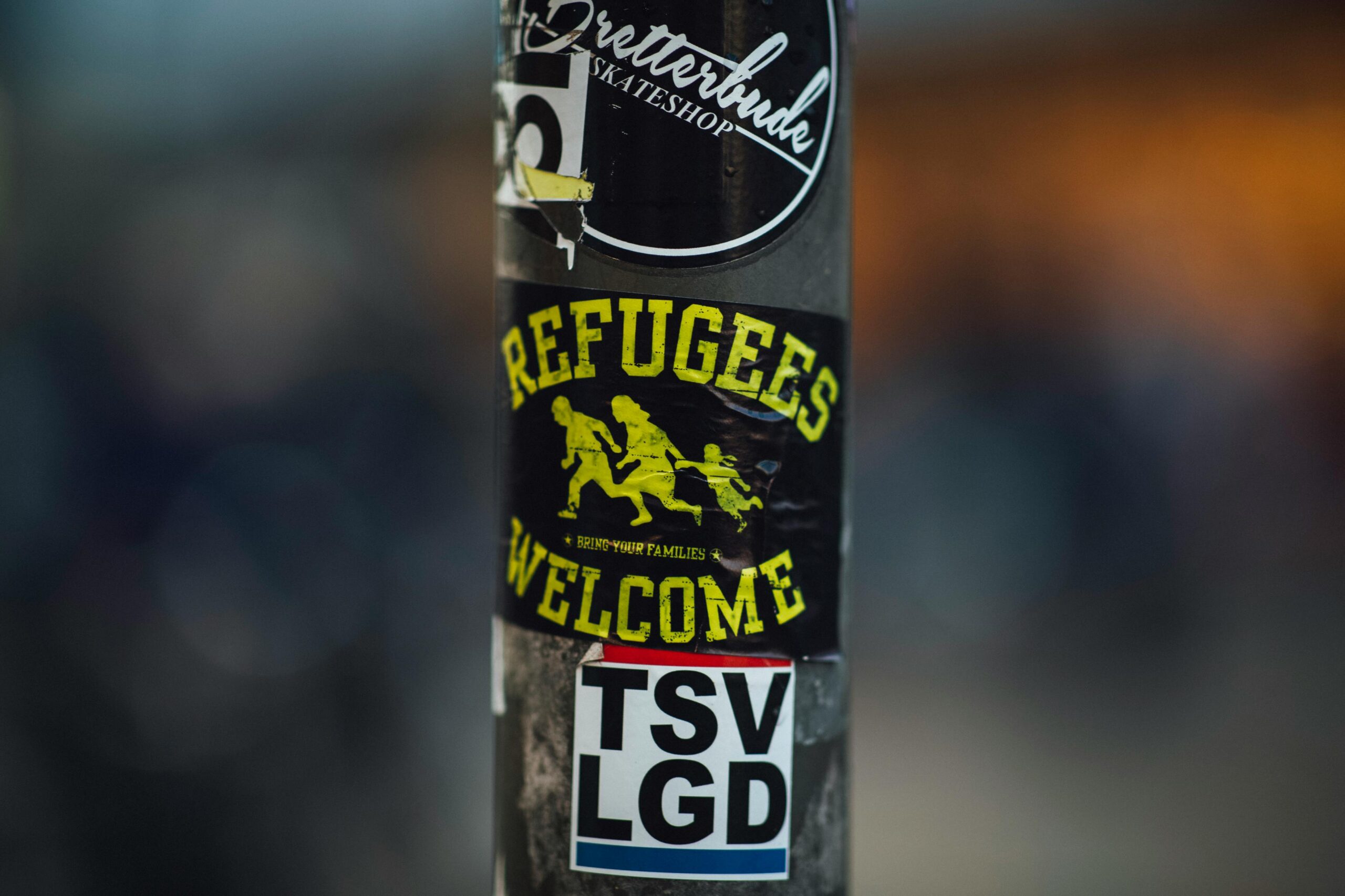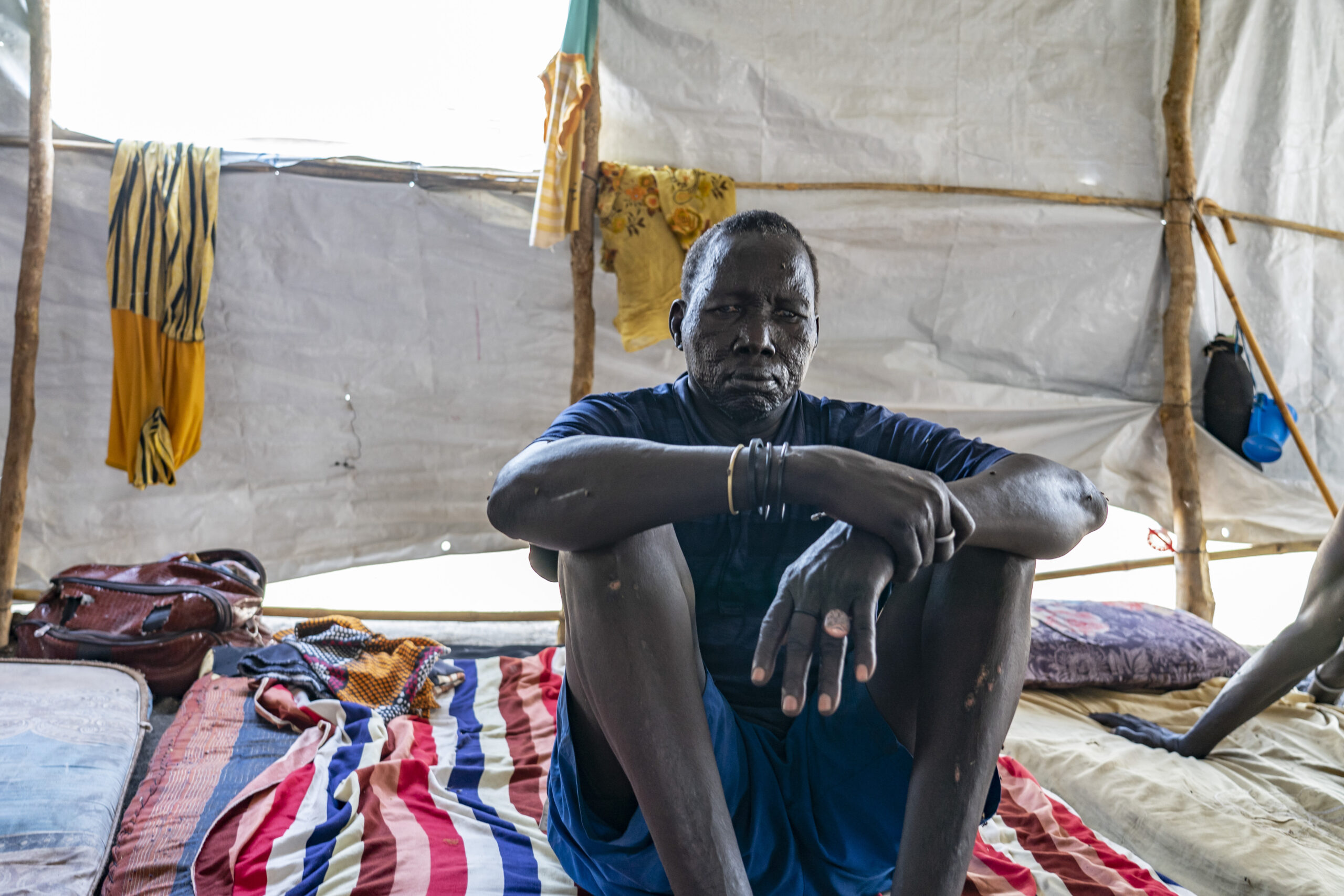
War still rages on in Sudan forcing thousands to flee to neighbouring countries of Chad, Ethiopia and South Sudan. In only one year, the ongoing conflict has forcibly displaced nearly 9 million people, making it the most severe displacement crisis globally. Among them, close to 7 million are internally displaced.
A savage civil war between the Rapid Support Forces (RSF), a paramilitary force, and the Sudanese Armed Forces (SAF) ravages Sudan as the two armed forces battle for power leaving civilians with no choice but to abandon their homes.
It’s hard to imagine the pain and fear of so many families who managed to escape bombings and terrible violence across the region.
The courage and resilience of many men, women and even children are astounding as stories of long journeys by foot, of desperation and survival have been shared by many who have arrived at border crossings seeking refuge at camps and transit centres such as Renk, where the Jesuit Refugee Service (JRS) is present offering humanitarian aid and psychosocial support.
South Sudan has witnessed the highest numbers of refugees, with over 600,000 people crossing its borders, most of whom (51%) are girls and boys under 18 years of age.
Accepting refugees across borders hasn’t been easy. The growing needs of the victims of the Sudan war has faded from news headlines and the horrendous humanitarian situation continues with urgent need for protection, education, (mental) health support, and shelter – the emergency work of JRS couldn’t be more critical.

Willium Ruei (58) is blind and was awaiting treatment for cataracts which have seriously impeded his sight. He arrived in Renk having walked from Khartoum for 4 days, later taking a car for two days before arriving at JRS’s transit centre. Willium travelled with his family including four small children. A bomb had hit their home in the capital but thankfully no one at the time was inside.
“We lost everything. All our belongings… everything”
Due to his poor sight, the journey was extremely challenging: “I felt lost, I felt anxious… at some point I fell and hurt my leg.”
Willium had an appointment for surgery but as war broke out, his family like many others fled the city. This, as you can imagine, has had a severe psychological impact on him.
Having been blind for nearly a year – he was looking forward to recovering his sight and his life. Civil war has ruined that dream for him.
Willium and his family hope to reach Juba because they think he might be able to go through eye surgery there. “If I recover, I will feel better” he explains.
“I wish my children a happy life and to go to school.”
“I regret this situation. I never imagined this would happen, and it only keeps getting worst.”
Now more than ever is solidarity so important.
The stories of refugees like Willium can also be found in our own communities. On World Refugee Day it is often overlooked that refugees and those seeking asylum can be found in our own communities here in Ireland. They too have stories of bravery, trauma and overcoming tragedy and danger.
In recent days we have seen publicly those who would shut out those in need and an anti-immigrant sentiment which is far from what it means to be Irish and a nation with a shared history with those suffering persecution and oppression.
As Imelda May penned: “you don’t get to be racist and Irish” – we too once immigrated, emigrated and took refuge and where war, whether in Sudan, Gaza or Ukraine, leaves people desperate it is only right to extend a helping hand.
For World Refugee Week we will be sharing refugee stories, like Willium’s, and our message is one of solidarity for all refugees near and far.
You can help us support refugees experiencing the unimaginable by donating or sharing their stories.
Photo credit: Markus Spiske.


